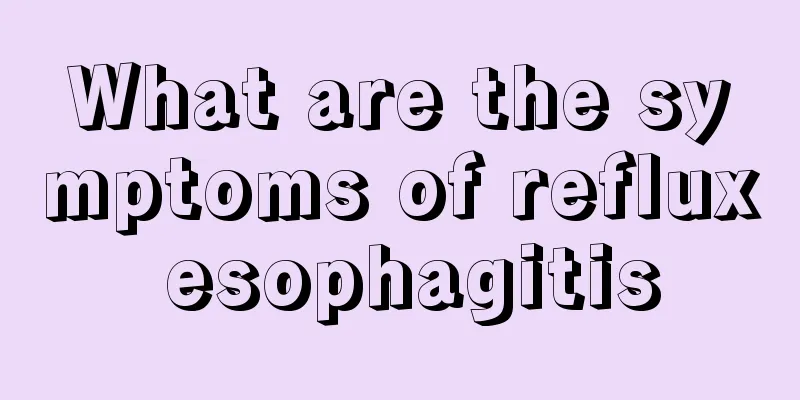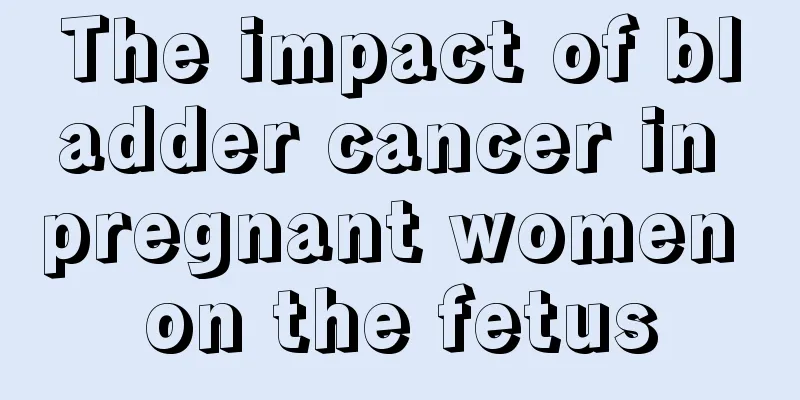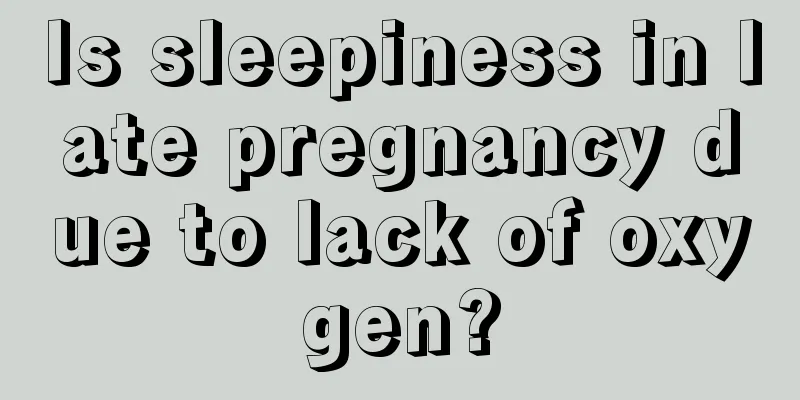What are the symptoms of reflux esophagitis

|
Reflux esophagitis is an inflammatory disease of the esophagus. Clinically, the symptoms of reflux esophagitis are very obvious. Food may back up into the esophagus or stomach tube, and patients often experience dysphagia when swallowing. When food is regurgitated, there is a noticeable burning sensation. 1. Gastric and esophageal reflux After each meal, when lying forward or sleeping in bed at night, acidic liquid or food refluxes from the stomach and esophagus into the pharynx or mouth. This symptom often occurs before the burning sensation or burning pain behind the sternum. 2. Painful swallowing It is caused by food bolus irritating the inflamed esophagus or esophageal spasm. The distribution and radiation sites of spasmodic pain are the same as those of heartburn. The food bolus causes acute expansion of the esophagus in the esophagitis area and some stenosis or motor dysfunction areas, and the third contraction or spasm occurs. The patient may feel that the food or liquid is paused above the esophagus and has to wait for the food bolus to move down or be flushed down by drinking water. The expanded esophagus above the food bolus pause can cause very severe pain. Spasmodic pain can also be caused by reflux. 3. Difficulty swallowing In the early stage, intermittent dysphagia may occur due to secondary esophageal spasm caused by esophagitis. In the later stage, the esophageal scar may cause stenosis, and the burning sensation and burning pain will gradually decrease and be replaced by permanent dysphagia. Eating solid food may cause a feeling of blockage or pain in the xiphoid process. 4. Nausea The reflux of gastric acid or bile into the back wall of the oral cavity indicates gastroesophageal reflux. The gastric contents can be vomited out or swallowed, leaving a sour or bitter taste in the pharynx and oral cavity, causing bad breath or taste damage. Chronically irritated lips may have a burning sensation. Nausea may occur after eating, exerting force or changing body position, often accompanied by gastrointestinal flatulence and hiccups. Nocturnal reflux can also cause coughing, aspiration pneumonia or suffocation. 5. Bleeding and anemia Severe esophagitis may cause esophageal mucosal erosion and bleeding, which is mostly chronic small-scale bleeding. Long-term or heavy bleeding can lead to iron deficiency anemia. 6. Other symptoms Refluxed material enters the throat through the cricopharyngeal sphincter, which may cause laryngeal and tracheal aspiration, inflammatory vocal cord polyps, and asthma in susceptible patients. Diffuse esophagitis or invasive ulcers may cause vomiting blood and chronic blood loss. A few penetrating ulcers may cause esophageal perforation. |
<<: What should I do if I have bloating due to appendicitis? These methods can alleviate
>>: What are the symptoms of colitis?
Recommend
Symptoms and common signs of mediastinal malignant tumors
Generally, benign mediastinal tumors have no symp...
What causes spots on your face? Do you have spots on your face?
Female friends, do you have spots on your face? T...
Sleeping posture for bulging disc
The sleeping position for intervertebral disc bul...
Are long-legged spiders poisonous?
Spiders are very common in the summer, especially...
What should you pay attention to when you have poor sleep and lose weight
The problem of poor sleep is quite common in life...
How to correctly prevent cervical pain?
White-collar workers who sit in the office for a ...
How to take care of cervical cancer after surgery? Teach you 5 ways to take care of cervical cancer after surgery
Cervical cancer is a common cancer of the reprodu...
Six secrets of tongue and health: purple tongue due to too much toxin deposits
Traditional Chinese medicine emphasizes the holis...
Is a pelvic mass ovarian cancer? Is it serious?
A pelvic mass does not necessarily mean ovarian c...
The dangers of running at night
People who like sports should often do one sport,...
Do you know the effects and functions of gentian?
Gentiana has many effects and functions, the most...
Traditional Chinese Medicine Treatment Methods for Liver Cancer
One of the characteristics of tumor treatment in ...
What causes flat nails?
In daily life, many people have uneven nails, but...
What are the key points in diagnosing colorectal cancer
Colorectal cancer is a common malignant tumor, in...
Can a child with gallbladder cancer be saved?
In recent years, the incidence of cholecystectomy...









